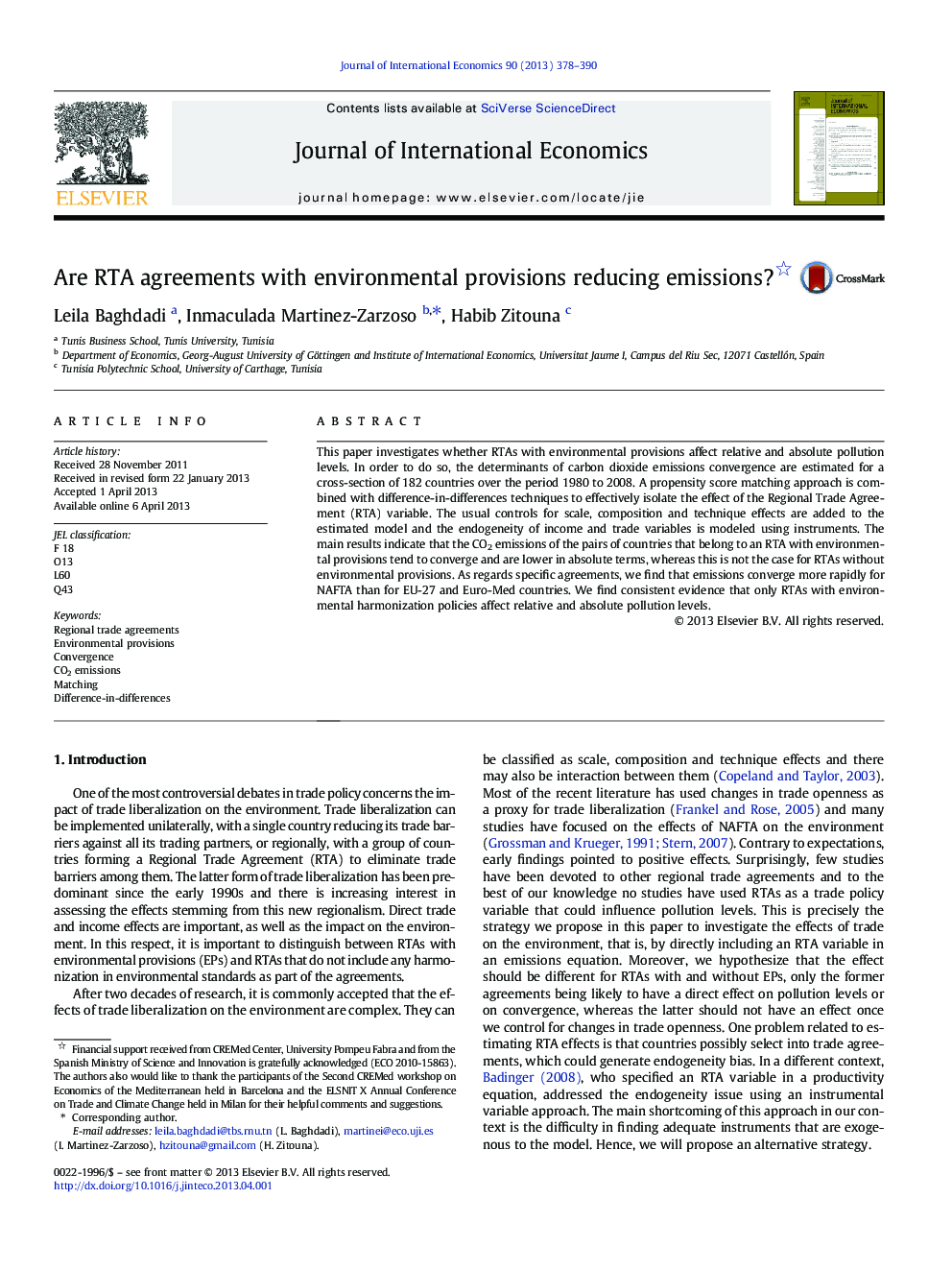| Article ID | Journal | Published Year | Pages | File Type |
|---|---|---|---|---|
| 962571 | Journal of International Economics | 2013 | 13 Pages |
Abstract
This paper investigates whether RTAs with environmental provisions affect relative and absolute pollution levels. In order to do so, the determinants of carbon dioxide emissions convergence are estimated for a cross-section of 182 countries over the period 1980 to 2008. A propensity score matching approach is combined with difference-in-differences techniques to effectively isolate the effect of the Regional Trade Agreement (RTA) variable. The usual controls for scale, composition and technique effects are added to the estimated model and the endogeneity of income and trade variables is modeled using instruments. The main results indicate that the CO2 emissions of the pairs of countries that belong to an RTA with environmental provisions tend to converge and are lower in absolute terms, whereas this is not the case for RTAs without environmental provisions. As regards specific agreements, we find that emissions converge more rapidly for NAFTA than for EU-27 and Euro-Med countries. We find consistent evidence that only RTAs with environmental harmonization policies affect relative and absolute pollution levels.
Keywords
Related Topics
Social Sciences and Humanities
Economics, Econometrics and Finance
Economics and Econometrics
Authors
Leila Baghdadi, Inmaculada Martinez-Zarzoso, Habib Zitouna,
